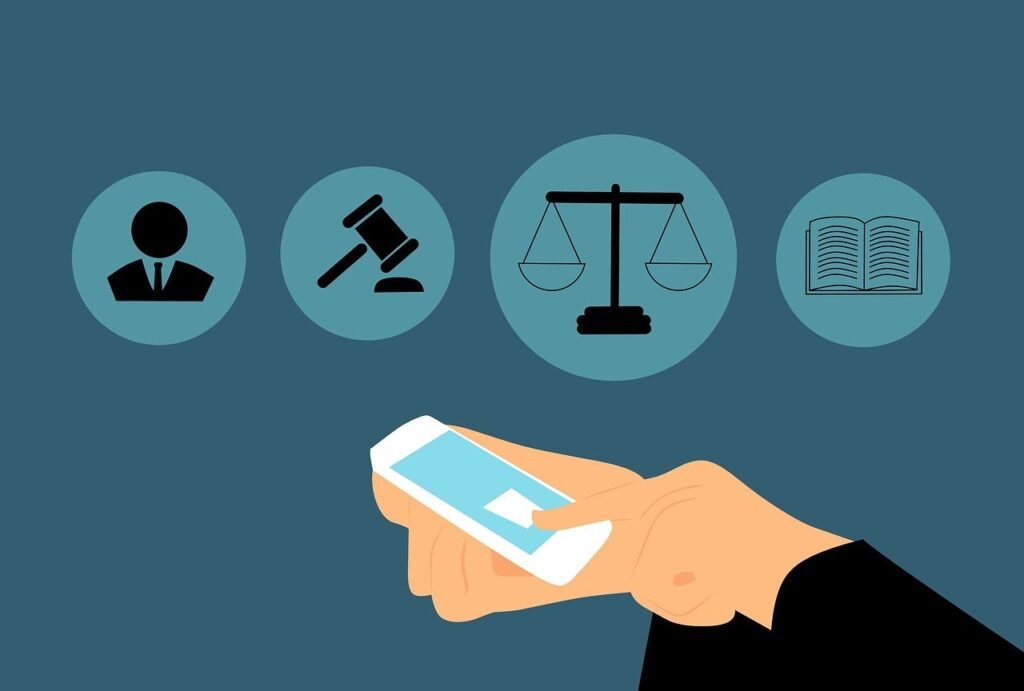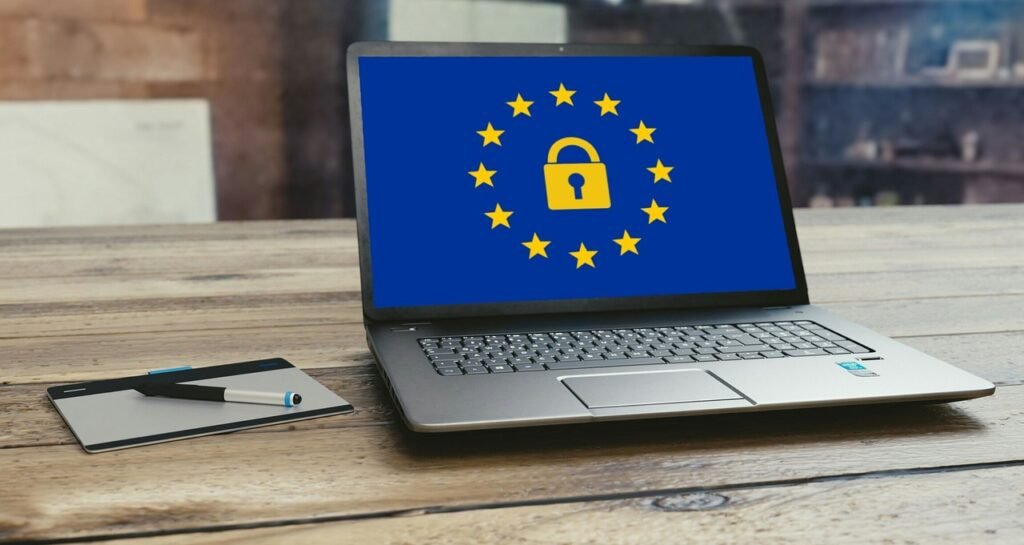This Article has been revised, edited and added to, by Poulomi Chakraborty.
- Comparing Ethical Norms and Legal Requirements in Data Collection
- Ethical Challenges in Data Collection
- Legal Obstacles in Data Collection
- Bridging Ethical Marketing with Legal Compliance
- Strategies for Ethical and Legal Data Collection in Digital Marketing
- Establishing Clear Data Governance Policies
- Leveraging Technology for Compliance
- Enhancing Consumer Trust through Transparency
- Continuous Education and Awareness
- Developing a Data Ethics Charter
- Prioritizing Data Minimization
- Implementing Advanced Consent Mechanisms
- Fostering a Culture of Privacy and Ethics
- Conclusion: The Road Ahead for Ethical and Legal Data Collection
In today’s digital era, data is often likened to oil—it fuels the massive engines of marketing strategies and drives business growth. Yet, as essential as data collection is for tailoring user experiences and boosting marketing efforts, it carries significant ethical and legal responsibilities. This article dives deep into the complexities surrounding data practices in digital marketing, examining both the ethical considerations and legal frameworks that guide these activities. By the end, you’ll gain actionable insights into how to ethically and legally handle consumer data, ensuring trust and compliance in your marketing strategies.
Comparing Ethical Norms and Legal Requirements in Data Collection

Understanding the Landscape of Data Ethics
Data ethics concern the moral principles that guide the responsible collection, sharing, and use of information. In digital marketing, ethical data practices revolve around respect for user privacy, transparency in data use, and ensuring fairness in data-driven decisions.
Ethical norms aren’t just about avoiding harm; they also involve fostering trust between companies and consumers. When marketers prioritize ethical considerations, they align their practices with consumer expectations and societal values, which can lead to increased brand loyalty and customer satisfaction.
However, ethical norms in data collection aren’t universally defined. What’s considered ethical can vary widely between cultures, industries, and even individual organizations.
For instance, a practice deemed acceptable in one country might be viewed as invasive or unethical in another. This variance often creates a complex landscape for international companies, which must navigate a patchwork of ethical expectations.
Navigating the Legal Terrain
Contrasting with ethical norms, legal requirements provide a more concrete framework for what is permissible in data collection and usage. Laws such as the General Data Protection Regulation (GDPR) in the European Union and the California Consumer Privacy Act (CCPA) in the United States establish clear rules and consequences for data handling in marketing. These laws typically cover aspects like consent, data subject rights, and obligations for data controllers and processors.
Legal compliance is non-negotiable. Failing to adhere to relevant data protection laws can result in substantial fines and damage to a company’s reputation. However, legal compliance does not automatically imply ethical integrity.
A company can comply with all applicable laws and still engage in practices that might be considered unethical by some stakeholders. For example, using legally obtained data to manipulate consumer behaviors in a way that is deemed exploitative might be legal but unethical.
Bridging Ethics with Legal Compliance
The intersection of ethics and legal compliance in data collection is where most debate and confusion occur. Ethical marketing goes beyond mere legal compliance, embedding respect for consumer rights into every facet of the marketing process. To bridge this gap, companies must develop comprehensive policies that not only meet legal requirements but also reflect ethical commitments.
One approach is to adopt a consumer-centric perspective, which involves prioritizing the consumer’s privacy and agency in all data practices. This might include more transparent data collection policies, easier access for consumers to control their data, and stricter internal controls on how data is used and shared.
Additionally, engaging in ongoing dialogue with stakeholders—such as customers, advocacy groups, and regulators—can help align a company’s data practices with both ethical norms and legal standards.
The Strategic Significance of Ethical Norms for Startups
For startup founders, understanding and implementing ethical norms in data collection can significantly influence the trajectory of their business. Ethical data practices are not just about adhering to moral principles; they are strategic imperatives that can differentiate a startup in a crowded market.
Startups, by their nature, often disrupt established markets with innovative ideas and technologies. By embedding ethical considerations into the fabric of their business models, startups can foster a strong, positive public perception and create a loyal customer base from the outset.
Strategic advice for startup founders involves conducting thorough stakeholder analysis to understand the expectations and concerns of their target audience regarding data privacy.
Engaging with these stakeholders through surveys or forums can provide valuable insights into their data privacy expectations and enable the startup to design data practices that meet these expectations.
This proactive approach not only enhances compliance with ethical norms but also directly contributes to building a brand that is trusted and respected in the market.
Legal Requirements: Navigating Through the Essentials
While startups must comply with legal standards, understanding the specific requirements of the jurisdictions in which they operate is crucial. Startups often operate with limited resources; thus, strategic legal compliance focuses on prioritizing areas with the highest risk or greatest impact on the business.
For example, if a startup is involved in e-commerce and handles sensitive customer data, its primary legal focus should be on securing this data in compliance with relevant laws like GDPR or CCPA, depending on the geographic location of its customers.
Moreover, it’s advisable for startups to seek partnerships or collaborations with legal experts who specialize in data protection laws. This relationship can be built through fixed retainer agreements, which provide ongoing support and guidance at a predictable cost.
Additionally, leveraging legal compliance as a marketing tool can be highly effective. Startups that transparently communicate their adherence to stringent legal standards may find an edge in markets where consumers are particularly privacy-conscious.
Bridging the Gap Between Ethical Norms and Legal Requirements
To strategically bridge the gap between ethical norms and legal requirements, startup founders should focus on building a culture of integrity and transparency from the top down.
This involves not only drafting policies and procedures that comply with both ethical norms and legal standards but also training all employees to understand and implement these practices in their daily work.
One actionable approach is for startups to implement regular audits of their data handling practices. These audits can help ensure that the company not only complies with current laws but also adheres to the highest ethical standards. Moreover, transparency about the outcomes of these audits shared with stakeholders can further enhance trust and credibility.
Another strategic approach involves the use of technology to automate compliance and ethical adherence. For instance, using software that automatically anonymizes personal data can help in adhering to privacy laws and ethical norms by reducing the risk of data misuse.
Additionally, deploying customer relationship management (CRM) systems that are designed with default privacy protections can simplify compliance and reduce the burden on staff.
Ethical Challenges in Data Collection

Transparency and Consent
One of the most significant ethical challenges in digital marketing is maintaining transparency and obtaining genuine consent. In an era where data breaches and misuse are rampant, consumers are increasingly wary about how their information is handled.
The ethical dilemma arises when marketers use complex, jargon-filled consent forms that users must accept to access services. This practice can undermine true consent, as consumers may not fully understand what they are agreeing to.
To address this, marketers need to simplify consent forms and clearly communicate what data is being collected, why it’s collected, and how it will be used. This not only aligns with ethical marketing principles but also enhances consumer trust.
A straightforward approach to consent can differentiate a brand as respectful and trustworthy in a market where deceptive practices are all too common.
Balancing Personalization with Privacy
Digital marketers face the challenge of balancing personalized marketing with privacy concerns. Personalization can provide a more engaging consumer experience, but it often requires collecting detailed information about individuals. This raises ethical questions about the extent to which personalization encroaches on privacy.
Marketers must navigate this by developing policies that limit data usage to what is absolutely necessary for personalization purposes and by keeping consumer welfare at the forefront of their strategies.
Implementing features like data minimization and anonymization can help mitigate privacy concerns while still delivering personalized experiences.
Navigating Consumer Perception and Ethical Data Use
For startup founders, understanding the impact of consumer perception on business success is crucial, especially when it comes to ethical data use. In the digital age, consumers are increasingly knowledgeable about data issues and sensitive to how their information is handled.
A startup that can demonstrate ethical data practices not only aligns with these consumer values but also leverages this alignment as a strategic asset.
A practical strategy involves openly communicating the measures taken to protect consumer data. This might mean detailing the lifecycle of data collection, storage, and deletion on your platforms.
Emphasize any steps beyond legal requirements that your startup takes to protect personal information. This can significantly boost consumer trust and differentiate your startup as a leader in ethical data practices.
Ethical Data Collection as a Competitive Advantage
Incorporating ethical considerations into your data collection processes can serve as a major competitive advantage. Startups often operate in niche markets or new industries where traditional players have not yet established dominance.
By positioning themselves as ethically conscious, startups can capture a segment of the market that values transparency and ethical responsibility.
To capitalize on this, startups should consider creating and promoting an ethical data manifesto. This document should outline your firm’s commitment to ethical data practices, including how you collect, use, and protect user data, and your stance on user privacy.
Making this manifesto public and easily accessible not only reinforces your startup’s commitment to ethical practices but also serves as a powerful tool in marketing campaigns.
Developing Ethical Guidelines for Emerging Technologies
Startups frequently employ emerging technologies like artificial intelligence (AI) and machine learning, which pose unique ethical challenges in data collection. The use of these technologies requires careful consideration to avoid biases and ensure fairness.
Developing ethical guidelines for these technologies can help mitigate risks and guide decision-making processes.
Founders should engage with ethicists and technologists to draft these guidelines. The process should include an assessment of the ethical implications of the algorithms and data models your startup uses.
For example, ensuring that AI-driven recommendations do not reinforce harmful stereotypes or lead to unfair outcomes can help maintain your company’s ethical standing.
Implementing Continuous Ethical Training
Creating a culture that prioritizes ethical data handling requires continuous effort. One effective approach is implementing regular training sessions for all employees.
These sessions should cover the importance of ethics in data handling, updates on relevant laws and regulations, and case studies that illustrate best practices and potential pitfalls.
Moreover, these training sessions offer an opportunity to reaffirm the company’s commitment to ethical practices and allow employees to ask questions and provide feedback on data-related policies.
Encouraging an open dialogue about ethics in data use helps maintain a high level of awareness and engagement among team members, fostering an organizational culture that prioritizes ethical considerations in all business practices.
Legal Obstacles in Data Collection

Compliance with Multiple Jurisdictions
For global or online businesses, complying with a myriad of data protection laws can be daunting. Each jurisdiction may have its own set of rules regarding data privacy and consumer rights. For example, the GDPR requires explicit consent for data collection, while other regulations might have different stipulations.
To overcome these obstacles, companies must invest in robust legal expertise to navigate the different requirements efficiently. This might involve creating region-specific strategies for data collection and processing to ensure compliance across all operational areas.
Handling Data Breaches
Legal frameworks invariably include stipulations for handling data breaches. Companies are often required to notify affected individuals and take specific measures to mitigate the impact of the breach. Failing to comply with these requirements can lead to hefty fines and severe reputational damage.
To align with both legal and ethical standards, companies should establish comprehensive data security practices and breach response plans. This involves regular audits, employing advanced security technologies, and training staff to recognize and respond to security threats effectively.
Navigating the Regulatory Landscape
Startup founders must navigate a complex regulatory landscape that varies by geography and industry. This can be particularly daunting for startups planning to operate across multiple jurisdictions or those that handle sensitive data.
Understanding and adhering to these varied legal frameworks is not merely about compliance, but about positioning your startup as reliable and secure in the eyes of customers and partners.
A strategic approach involves conducting a comprehensive legal audit before launching any data-driven services. This audit should identify all applicable data protection laws, including niche regulations that may apply based on your startup’s specific sector or the nature of the data processed.
Consulting with legal professionals who specialize in data protection and having them on-call can streamline this process, ensuring that your startup remains agile and compliant.
Building Flexibility into Data Practices
As laws and regulations can change rapidly, building flexibility into your data handling practices is essential. This flexibility allows your startup to adapt quickly to new requirements without significant overhauls of your systems, which can be costly and disruptive.
Incorporating modular privacy features into your product design is one way to achieve this. For instance, designing data storage solutions that allow for easy segmentation and deletion of data can help comply with regulations such as the GDPR, which grants users the right to be forgotten.
Additionally, using cloud services that provide robust compliance tools tailored to specific regions can reduce the burden of adapting to new laws.
Proactive Compliance Strategies
Proactive compliance involves anticipating future legal changes and preparing in advance to meet them. This strategy not only helps avoid legal pitfalls but also demonstrates to customers and regulators that your startup is committed to high standards of data protection.
Engaging with legal and regulatory trends through memberships in industry associations or data protection groups can provide insights into upcoming changes. These organizations often provide resources and networking opportunities that can help your startup stay ahead of regulatory shifts.
Furthermore, participating in public discussions about data protection and privacy can elevate your startup’s profile as a thought leader in this space.
Leveraging Legal Compliance for Growth
Legal compliance, often viewed as a hurdle, can actually be leveraged as a growth lever. Startups that transparently communicate their compliance are better positioned to build trust with users and attract business partners. This is particularly true in sectors where data sensitivity is high, such as health care or financial services.
To capitalize on this, startups should market their compliance as a feature of their service. For example, publishing detailed, user-friendly explanations of how you comply with laws like GDPR or HIPAA not only informs users but also highlights your startup’s commitment to protecting their data. Such transparency can differentiate your startup from competitors who may not place as much emphasis on legal compliance.

Related: Check out our free SEO suite

Bridging Ethical Marketing with Legal Compliance
Achieving a balance between ethical marketing and legal compliance involves a strategic approach where both elements are integrated seamlessly into business practices.
Companies can start by adopting a privacy-by-design approach, which means considering data protection and privacy issues during the design phase of any new product, service, or marketing campaign.
Furthermore, fostering a culture of ethical awareness within the organization can help ensure that all employees understand the importance of ethical and legal considerations in their day-to-day work.
This cultural shift can be supported by regular training on ethical practices and legal requirements, encouraging staff to think critically about the implications of their data handling practices.
Crafting a Unified Compliance and Ethics Framework
For startup founders, the task of aligning ethical intentions with legal requirements should begin with the establishment of a unified framework that integrates both elements.
This framework is not just a compliance checklist but a comprehensive guide that influences every strategic decision related to data handling and marketing practices.
Developing such a framework involves a deep understanding of the values that your startup wants to embody, as well as the legal landscapes in which it operates. This unified approach should articulate clear policies that cover everything from data acquisition and usage to customer engagement and conflict resolution.
This document should serve as the backbone for all operations, ensuring that every team member understands and adheres to these standards, thereby reducing the risk of legal or ethical breaches.
Engaging Stakeholders in Ethical Discussions
Incorporating stakeholders into the conversation about ethics and compliance is another crucial strategy. This not only includes customers but also employees, partners, and potentially even regulators.
Organizing regular forums or workshops where these topics can be discussed openly helps to build a culture of transparency and integrity.
For startups, these discussions can be invaluable for gaining diverse perspectives on potential ethical dilemmas that might not be immediately obvious. Additionally, such engagement can foster a sense of shared responsibility among all parties, enhancing trust and cooperation. It also keeps your startup agile, ready to adapt to new ethical challenges as they arise.
Implementing Robust Monitoring and Reporting Systems
To effectively bridge ethics with legal compliance, startups must implement systems that monitor adherence and flag potential issues before they become problematic. This involves more than just routine audits; it requires continuous monitoring of data practices and marketing strategies through both automated tools and human oversight.
Such systems should be designed to not only detect deviations from established policies but also track the effectiveness of those policies in real-world scenarios. Regular reporting of these findings to senior management and necessary adjustments based on these reports are essential.
This ongoing process ensures that the startup remains on the cutting edge of compliance and ethics, ready to adapt as new challenges and regulations emerge.
Leveraging Technology to Enhance Compliance and Ethics
Technology can be a powerful ally in the effort to synthesize ethical marketing with legal compliance. Utilizing software that helps in automating compliance tasks, such as data privacy management tools, can reduce the burden on human resources and minimize errors.
Furthermore, technology can help in providing transparency to users about how their data is being used—an essential aspect of ethical marketing.
Startups should consider investing in technology that facilitates better data governance and transparency. Features like blockchain for data tracking or AI for analyzing the ethical implications of marketing strategies can provide significant advantages.
These technologies not only help in compliance but also serve as selling points that demonstrate a commitment to ethical standards and legal conformity.
Strategies for Ethical and Legal Data Collection in Digital Marketing

Establishing Clear Data Governance Policies
A fundamental strategy for ensuring both ethical and legal compliance in data collection is to establish clear data governance policies. These policies should outline how data is collected, stored, used, and shared within the organization. By having formal guidelines, companies can ensure consistent application of data practices that respect consumer rights and comply with legal standards.
Key elements of effective data governance include:
- Data Accuracy and Quality: Ensuring that data collected is accurate and maintained properly reduces the risk of misuse or errors that could impact consumer trust or legal compliance.
- Data Access Controls: Limiting who can access data within the organization helps prevent unauthorized use and leakage, safeguarding both consumer privacy and company reputation.
- Audit Trails: Implementing mechanisms to track how data is used and by whom can help in identifying and addressing potential ethical or legal issues promptly.
Leveraging Technology for Compliance
Technology plays a crucial role in managing data ethically and legally. Tools such as automated compliance solutions can help organizations keep up with the changing legal landscape and ensure that their practices remain compliant. Additionally, technologies like encryption and tokenization can secure data and minimize the risk of breaches.
Investing in privacy-enhancing technologies (PETs) can also enable companies to derive insights from data while respecting user privacy. For example, differential privacy techniques can be used to analyze large sets of data without exposing individual data points, thus maintaining personal privacy.
Enhancing Consumer Trust through Transparency
Transparency is not just an ethical requirement; it’s a strategic advantage. Companies that are open about their data practices often build stronger relationships with their customers. This involves more than just providing a privacy policy; it requires active communication about how data enhances customer experiences.
Practical steps for enhancing transparency include:
- Clear Communication: Using plain language to explain data practices in consent forms, privacy policies, and marketing materials.
- Visibility and Control: Giving consumers easy access to their data and control over how it is used. This can include tools for viewing the data a company holds about them, updating their information, and opting out of certain data uses.
- Engaging with Consumers: Regularly soliciting feedback about data practices and adjusting policies based on consumer preferences and concerns.
Continuous Education and Awareness
Keeping up with both ethical expectations and legal requirements requires ongoing education and awareness. This means not only training staff about compliance and ethical practices but also staying informed about new regulations, technologies, and consumer expectations.
Organizations can foster a culture of continuous learning by:
- Regular Training Programs: Conducting workshops and seminars to keep staff updated on the latest data protection laws and ethical best practices.
- Collaboration with Experts: Working with legal experts, data protection officers, and ethical consultants to review and update data practices regularly.
- Industry Engagement: Participating in industry forums, workshops, and conferences to exchange ideas and stay abreast of best practices and emerging trends.
Developing a Data Ethics Charter
For startups, one strategic move is to develop and adhere to a Data Ethics Charter. This charter goes beyond compliance and legal requirements by establishing a set of principles that guide all data collection, processing, and usage within the company.
The charter should reflect the startup’s commitment to ethical standards and outline specific practices that support transparency, accountability, and respect for user privacy.
Creating a Data Ethics Charter involves engaging with key stakeholders—employees, customers, and possibly external ethics consultants—to draft a document that is both aspirational and practical.
This charter should then be publicly shared and integrated into all training programs, ensuring that every team member is not just aware of it but also guided by it in their daily operations. This approach not only strengthens internal governance but also enhances the public’s trust in your startup.
Prioritizing Data Minimization

In the quest to remain both ethical and compliant, data minimization emerges as a key strategy. This practice involves collecting only the data that is directly necessary to accomplish a specified purpose.
By limiting the amount of data collected, startups can reduce the risks associated with data breaches and non-compliance with privacy laws.
To implement data minimization effectively, startups should critically assess each data collection point in their marketing processes. Question whether each piece of data is essential for the specified purpose or if it can be achieved with less.
Moreover, startups should establish mechanisms to regularly review and possibly purge unnecessary data, maintaining a lean and more secure data environment.
Implementing Advanced Consent Mechanisms
Consent is a cornerstone of both ethical marketing and legal compliance. Advanced consent mechanisms that are clear, transparent, and easy for users to understand can significantly enhance user trust and regulatory compliance.
These mechanisms should allow users to easily opt in or out of different types of data collection and usage, with settings that are simple to change at any time.
For startups, developing a consent management platform that is integrated into your digital properties can be a strategic investment. This platform should not only manage consent in real-time but also provide users with detailed information about what data is being collected and how it will be used.
Such transparency is crucial for building a trustworthy relationship with your users and can differentiate your startup in a competitive marketplace.
Fostering a Culture of Privacy and Ethics
Creating a culture that values privacy and ethics is crucial for long-term success. This involves regular training and updates for all employees, focusing on the importance of ethical practices and legal compliance in everyday business operations.
It’s also vital to encourage an environment where employees feel comfortable reporting potential ethical or legal issues.
Startups should consider appointing a dedicated privacy officer or team, even on a part-time or outsourced basis, to oversee data practices and ensure they align with both internal ethics policies and external legal requirements.
This role could also be responsible for staying updated on changes in law and best practices, advising the startup on how to evolve its policies and practices in response.
Conclusion: The Road Ahead for Ethical and Legal Data Collection
In the dynamic realm of digital marketing, ethical and legal adherence in data collection isn’t just a regulatory requirement—it’s a core element of building trust and sustaining long-term relationships with consumers. As we’ve explored, aligning marketing practices with both legal standards and ethical norms can significantly enhance a brand’s reputation and consumer loyalty. The strategies discussed emphasize the importance of transparency, continuous education, and the use of technology to ensure compliance and protect consumer privacy.
Companies that proactively engage in these practices are not only better equipped to navigate the complexities of data laws but are also positioned as industry leaders who prioritize customer welfare. In conclusion, the future of digital marketing lies in the hands of those who recognize the value of ethical integrity and legal compliance, making them integral to their business strategy. This approach will undoubtedly lead to a more trustworthy and consumer-friendly marketing landscape.
Read Next
- International Link Building for Sustainable Brands
- Multilingual SEO for Sustainable Brands: Here’s What We Would Do
- Hosting Green Community Events to Boost Local SEO for Sustainability-Focused Startups
- Importance of Local Citations for Green Businesses
- Optimizing Google My Business for Sustainable Brands






















Comments are closed.